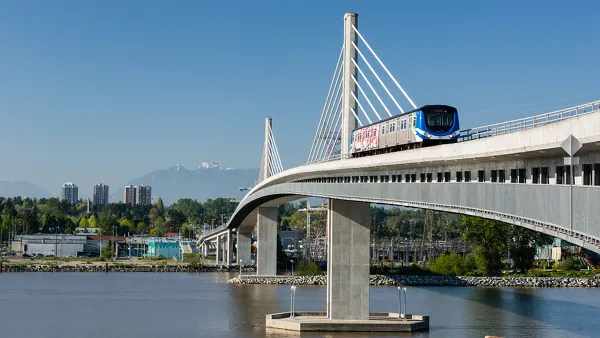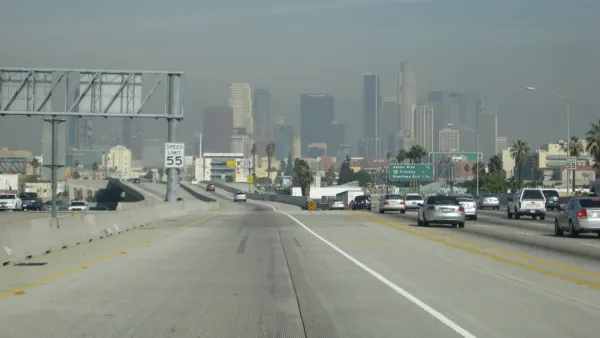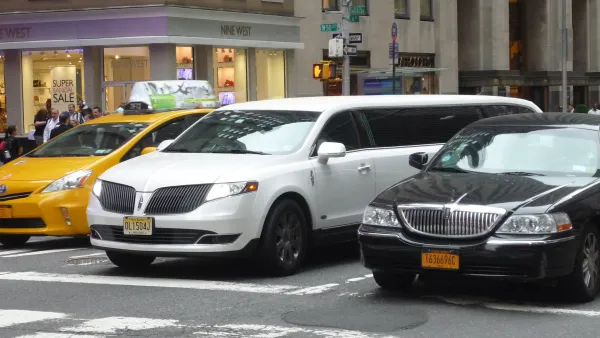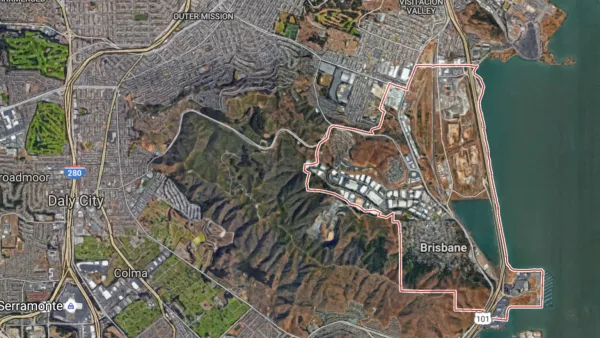Irvin Dawid discovered Planetizen when a classmate in an urban planning lab at San Jose State University shared it with him in 2003. When he left San Jose State that year, he took with him an interest in Planetizen, if not the master's degree in urban & regional planning.
As a long-time environmental activist, he formed the Sustainable Land Use committee for his local Sierra Club chapter and served six years on the Bay Area Air Quality Management District’s Advisory Council from 2002-2008. He maintains his interest in air quality by representing Sierra Club California on the Clean Air Dialogue, a working group of the Calif. Environmental Dialog representing business, regulatory and public health/environmental interests.
Major interests include transportation funding, e.g., gas taxes, vehicle miles traveled (VMT) fees, road tolls and energy subsidies that lead to unlevel playing fields for more sustainable choices.
He hails from Queens (Bayside) and Long Island (Great Neck); received an AAS in Fisheries & Wildlife Technology from SUNY Cobleskill and a B.S. from what is now Excelsior College.
After residing for three years on California’s North Coast, he’s lived on the San Francisco Peninsula since 1983, including 24 years in Palo Alto. Home is now near downtown Burlingame, a short bike-ride to the Caltrain station.
He’s been car-free since driving his 1972 Dodge Tradesman maxi-van, his means to exit Long Island in 1979, to the junkyard in 1988.
Major forms of transportation: A 1991 'citybike' and monthly Caltrain pass, zone 2-2. "It's no LIRR, but it may be the most bike friendly train in America."
Irvin can be reached at [email protected]

Good News, Finally, For Flint, Michigan Residents
There's good but guarded news on drinking water. Lead levels are lower, below the federal action threshold, but residents are advised not to drink it without using filters. A federal state of emergency in effect since January was lifted Sunday.

Three Urban Transportation Experts Discuss Post 'Peak Car' Urban Planning
Emily Badger, Washington Post Journalist; Peter Newman, sustainability author and professor in Perth; and Robert Puentes of Eno Center discuss the changes in transportation planning now that car trips are on the wane in urban centers.

Gov. Baker Looks Toward California and Oregon While Vetoing Mileage Fee Pilot Program
A bill to provide $750 million in road and bridge financing was signed by Mass. Gov. Charlie Baker on Wednesday after stripping a provision to apply for a federal grant to conduct a pilot program similar to the California Road Charge Pilot.

Transportation Network Companies Increase Mobility for Underserved Communities
A recent op-ed posted here warned against new transportation technologies and instead encouraged cities to invest in public transit and walkable communities. However, transportation network companies claim to have increased transportation equity.

Opposition to Bay Area Housing Exposed
A 660-acre Bay Area brownfield served by commuter and light rail is the latest battleground between suburban communities intent on preserving open space and quality of life and meeting the Bay Area's unmet housing demand.

























